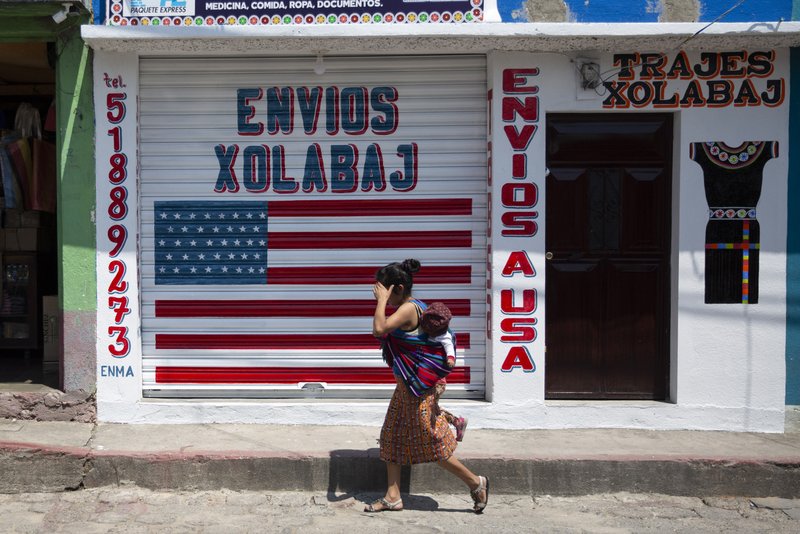MIAMI -- The devastation wrought by covid-19 across the developed world is cutting into the financial lifelines for people across Latin America, Africa and Asia.
The World Bank estimates that a record $529 billion was transferred to developing countries through official channels in 2018, the latest year for which figures are available. Billions more moved unrecorded in cash.
Many of those remittances are sent home by people who work in service jobs or occupations, like day labor, that have no monthly paycheck and are worst affected by the global downtown. Some also comes from migrants who have entered countries without legal status and are ineligible for part of the aid packages uncorked by advanced economies.
With coronavirus shutting down industries, many earners in Miami, Las Vegas, London and other economic centers can no longer afford to send their monthly $50, $100 or $200 to Honduras, Somalia or India. The shock waves are pushing their relatives to desperation.
[CORONAVIRUS: Click here for our complete coverage » arkansasonline.com/coronavirus]
Across Africa, where remittances have grown to surpass foreign aid and direct foreign investment and some $82 billion flowed in during 2018 alone, untold millions of people are already feeling the pinch. One money-transfer company in Europe sending funds to Africa saw an 80% drop in volume in a single week, the Washington-based Center for Financial Inclusion said last month.
In Somalia, Abdalla Sabdow, a former security guard and a father of six, made his way through Mogadishu last week to check on the $200 he receives monthly from his cousin, Yusuf Ahmed, a taxi driver in the U.S. But the money was late. His cousin, like many in the U.S., had been confined to his home for almost three weeks, unable to work.
"I came back empty-handed," an anxious-looking Sabdow said. "Time is running out ... It is very distressing."
With three of his small children piled onto his lap at home, he worried about falling behind in rent, no small thing in a city where camps of hundreds of thousands of internally displaced people are a constant reminder of the fragility of circumstances.
Remittances make up more than 5% of GDP in at least 13 African nations, sometimes far more, the Brookings Institution said last month. Kenya's remittances are now its largest source of foreign exchange, its president said in December.
More than a third of all remittances to Africa come from the European Union, and other significant sources are North America, Persian Gulf nations and other African countries. Informal remittances, though not tracked in World Bank and other data, are estimated to be the source of billions of dollars more.
Central America, a region heavily dependent on remittances from the United States, could see a 20% drop, from $23.9 billion last year to $19.12 billion this year, said Jonathan Menkos, director of the Central American Institute of Fiscal Studies.
In the largely indigenous Guatemalan town of Joyabaj, half of the 100,000 residents depend on remittances, almost all from the U.S.
Rosa Lopez, 18, left a money-transfer office last week holding her 2-year-old son and $100 sent by her sister, who works at a dairy in Texas. The dairy has cut working hours in half, forcing the sister to cut back the money she sends.
The money that came last week will allow Lopez and seven other relatives to buy rice, beans and other basics, but they may have to stop paying the light and water bills, she said.
"We need to figure out a way not to die of hunger," Lopez said.
Information for this article was contributed by Evens Sanon, Mohamed Sheikh Nor and Subramoney Iyer of The Associated Press.
A Section on 04/09/2020
